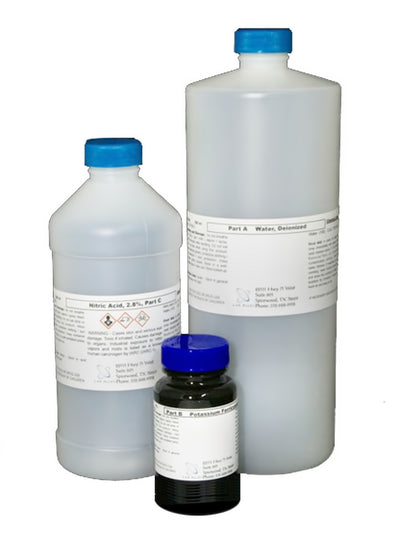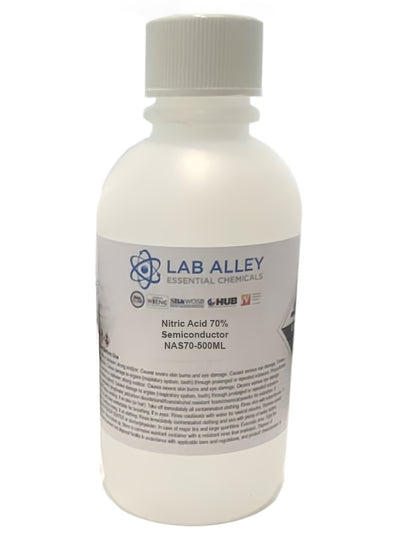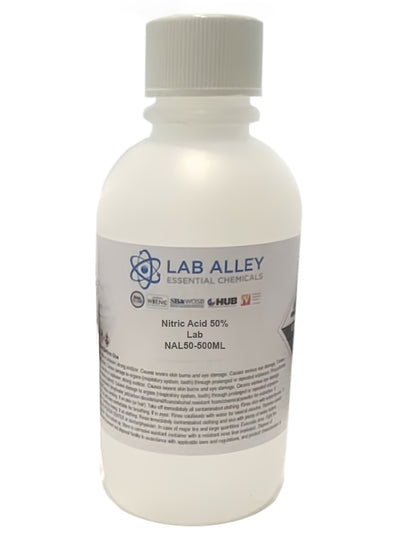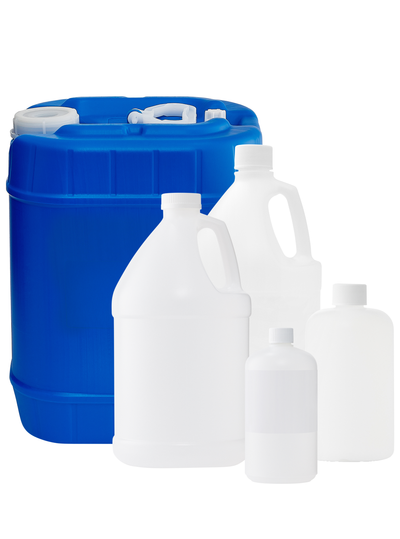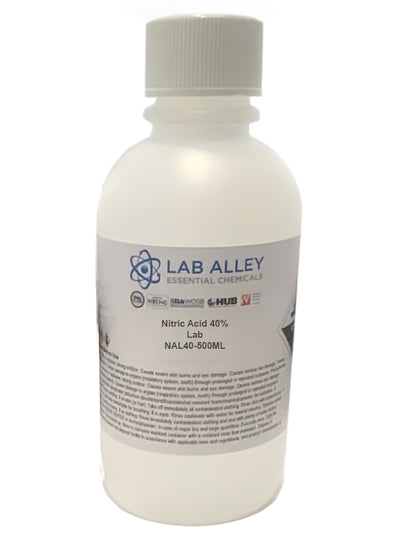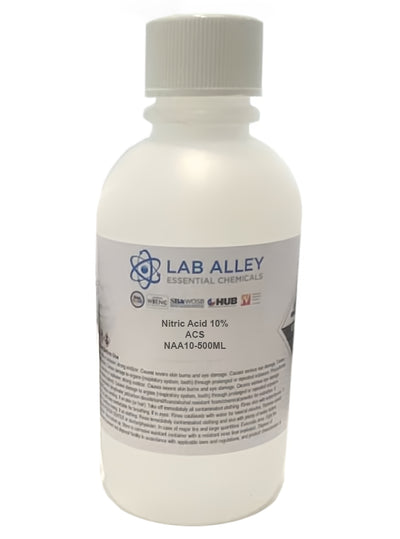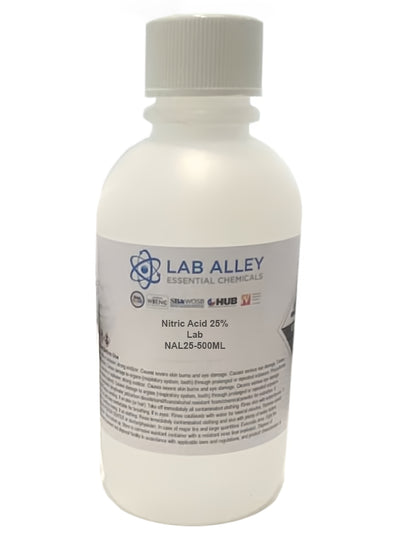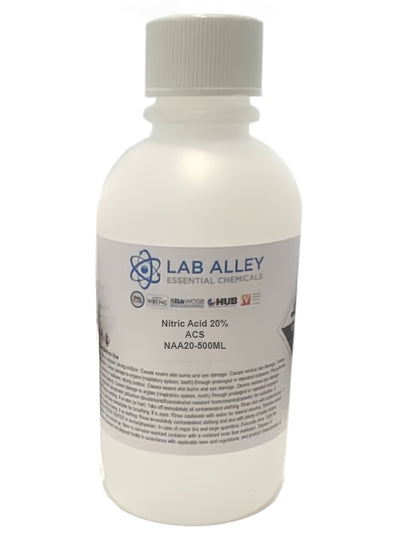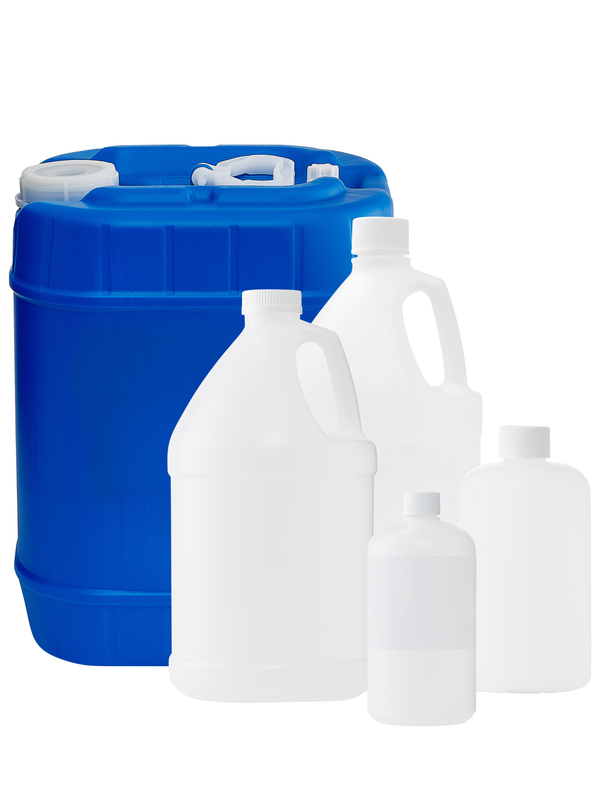
Business Support
Nitric Acid 2.7N Solution, Lab Grade
For questions regarding lead time, please contact a member of our Customer Care Team at customercare@laballey.com
Business Support
Description
About Nitric Acid 2.7N Solution, Lab Grade
Nitric Acid, also known as Aqua Fortis, Engraver’s Acid, Azotic Acid, and Hydrogen Nitrate has the chemical formula HNO3. It appears as a transparent, pale yellow to red-brown liquid, releasing reddish- brown fumes, with a characteristic choking odor. It is soluble in Water but highly toxic on inhalation. Short- term exposure to high concentrations and prolonged exposure to low concentrations are hazardous and may result in adverse health effects. Lab Alley’s Nitric Acid, 2.7N Solution is prepared by mixing 15.41% by weight of Nitric Acid in 84.30% by weight of Deionized Water. Chemically pure or Laboratory reagents are two terms often used to describe Lab Grade chemicals. Lab Grade chemicals do not meet any accepted quality or purity requirements such as the ACS Grade, the USP Grade, and the FCC Grade, despite their acceptable purity. In the United States of America (USA), Lab Alley is selling its high-quality Nitric Acid, 2.7N Solution, Lab Grade online at laballey.com.
COMMON USES AND APPLICATIONS
- Titration
- Reagent
- Dye intermediates
- Ion exchange agents
- Oxidizing/reducing agents
INDUSTRIES
- Laboratory chemicals
- Fertilizers
- Etching
- Gold recovery
PRODUCT INFORMATION
Customer Reviews and Q&A
Safety and Shipping
Please contact us to request a Safety Data Sheet (SDS) and Certificate of Analysis (COA) for Nitric Acid Solution 2.7N.
Business Support
Built for Business.
At Lab Alley, we simplify procurement with custom quotes, credit applications, tax exemptions, and fulfillment support, ensuring on-budget, on-time delivery - your success is our priority.
Apply for Credit
A Lab Alley credit account streamlines purchasing for your business. Our Customer Success Team is available to help you through every step of the process.
Request a Custom Quote
Get a fast, customized quote tailored to your specific needs. Our team ensures accurate pricing and availability to help streamline your purchasing process.

Additional Business Resources
Lab Alley provides access to essential certifications, documents, and other resources to support your business.

Create a Lab Alley Account

RECEIVE exclusive offers, promotions, and discounts on chemicals.

Always have the product you need, when you need it with our AUTOSHIP program.





